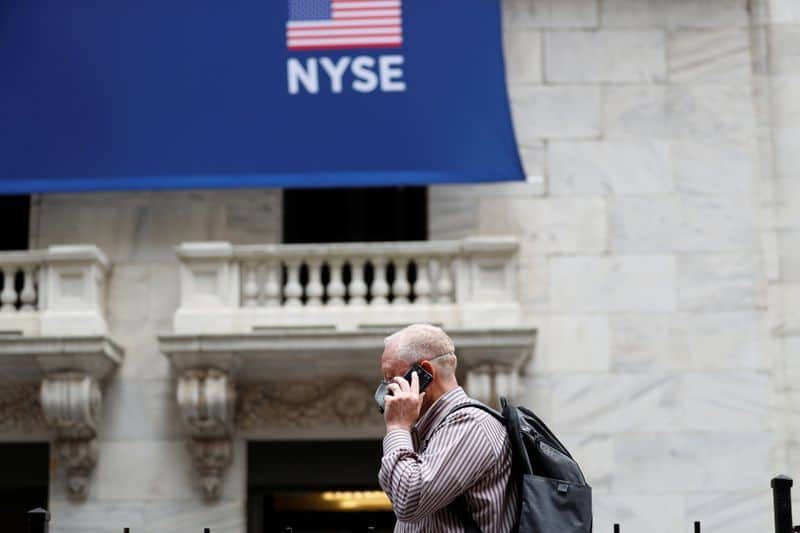The S&P 500 ended lower on Friday after an up-and-down session as investors weighed spiking cases of COVID-19 and Apple Inc’s announcement of fresh store closures against anticipated stimulus and continued economic recovery.
The S&P 500 ultimately settled in the red, along with the blue-chip Dow, while the tech-heavy Nasdaq closed nominally higher.
“You’ve got these dueling forces with Fed stimulus and the consumer spending again on one side, and on the other side the resurgence (of COVID-19) in pockets of areas around the globe,” said Matthew Keator, managing partner in the Keator Group, a wealth management firm in Lenox, Massachusetts.
Apple Inc announced it is temporarily shutting some stores again in Florida, Arizona, South Carolina and North Carolina, which have seen a spike in coronavirus cases in recent days.
“Apple is the canary in the coalmine with respect to other businesses,” Keator added. You’ll start to see other businesses do similar things in some of the states where we’re seeing the virus reemerge.”
“(But) there’s also a feeling that the Fed is acutely aware of what’s going and will help where and when needed,” Keator said.
New cases of COVID-19 set records across at least six U.S. states, and mandated mask use is becoming more common as economies continue reopening. China, where the pandemic originated but had been contained, also reported an uptick in new cases of the disease.
Still, for the week, the S&P 500, the Dow and the Nasdaq posted solid percentage gains.
The S&P 500 and the Dow are now at 8.5% and 12.5% shy of their respective all-time highs reached in February. The tech-heavy Nasdaq stands at 1.3% below its last closing high reached on June 10, after breaching that level earlier in the session.
Trading volume is typically light on summer Fridays as investors head into the weekend.
But Friday marked “quadruple witching,” in which futures and options expiries occur, and that typically translates into elevated volume and liquidity. The S&P is synchronizing its delayed rebalancing to take advantage of that liquidity.
In a video conference, U.S. Federal Reserve Chair Jerome Powell warned the economic recovery from the pandemic is set to be challenging and there will be no quick fix.
The Dow Jones Industrial Average fell 208.64 points, or 0.8%, to 25,871.46, the S&P 500 lost 17.53 points, or 0.56%, to 3,097.81 and the Nasdaq Composite added 3.07 points, or 0.03%, to 9,946.12.
Of the 11 sectors in the S&P 500, 10 lost ground, with healthcare the sole gainer.
Airlines, hit particularly hard by the economic lockdowns, were down sharply, with the S&P 1500 Airline index falling 4.2%.
AMC Entertainment Holdings Inc, the world’s largest movie theater operator, dipped 2.0% after its announcement that it would reopen theaters at about 450 locations in the United States next month was tempered by renewed shutdown fears.
Declining issues outnumbered advancing ones on the NYSE by a 1.66-to-1 ratio; on Nasdaq, a 1.15-to-1 ratio favored decliners.
The S&P 500 posted 22 new 52-week highs and no new lows; the Nasdaq Composite recorded 134 new highs and three new lows.
Volume on U.S. exchanges was 15.84 billion shares, compared with the 13.17 billion average over the last 20 trading days.

